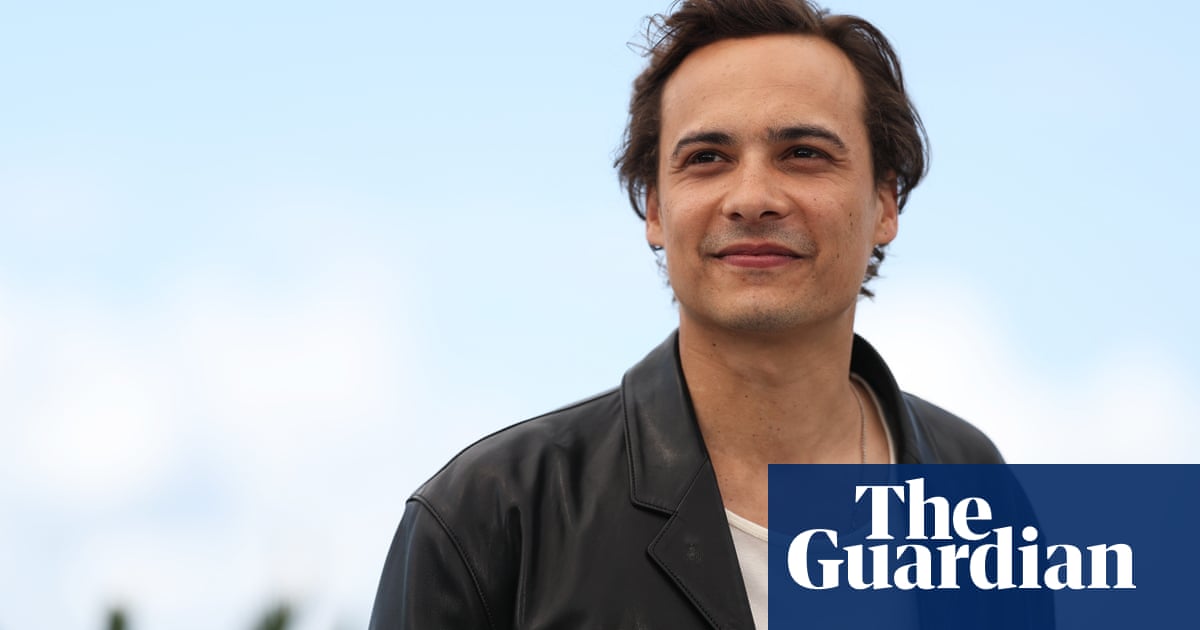Few actors make an instant impact on their first major film festival appearance, but Frank Dillane, star of fellow actor Harris Dickinson’s directing debut Urchin, is one of them. Critics are near-unanimous in their praise, withVariety calling his performance “revelatory”, andIndieWire describing it as “magnetic”.Influential film industry publication Deadlinesaid that Dillane “arrived in Cannes a virtual unknown, but Harris Dickinson’s directorial debut has made him a star”.
In Urchin, Dillane plays Mike, a man living on the streets who ends up in jail after committing an assault and then struggles to go straight after his release. Despite being given a place in a hostel and helped into employment, Mike is tempted to fall back into his old ways. With a script written by Dickinson, Dillane committed to the role by trying full-immersion method acting, saying: “I spent a lot of time in soup kitchens, a lot of time with people, friends, walking around … You’re carrying your stuff, your feet hurt, your back hurts. It’s the weather. You can never close a door. You can’t sit here, you can’t stand there, move it along. No one’s looking at you.”
Calling Dillane, 34, an “unknown” is not entirely accurate. Millions will have seen him in the small but eye-catching role of teenage Tom Riddle in the 2009 picture Harry Potter and the Half-Blood Prince. He also held down a significant role in the first four seasons of hit zombie TV series Fear the Walking Dead as heroin addict Nick Clark, and starred alongside Tom Hiddleston and Claire Danes in the Apple TV+ series The Essex Serpent, adapted from the novel by Sarah Perry. The son of Game of Thrones star Stephen Dillane and Naomi Wirthner, best known as records keeper Molly Doran in Slow Horses, he – like Spider-Man’s Tom Holland, Nosferatu’s Lily-Rose Depp, andfellow Cannes breakout star Mia Threapleton– may count as a “nepo baby” but earned his corn by spending three years at the Royal Academy of Dramatic Art between 2010 and 2013.
But his stock has undoubtedly shot up as a result of Urchin’s impact at Cannes, where it was selected for the Un Certain Regard sidebar. Guy Lodge, the UK critic for Variety, says that “it feels like he’s finally taking a step into serious character actor territory”. As well as Urchin, Dillane has impressed critics in another film that has so far played only at film festivals: Harvest, directed by Athina Rachel Tsangari, which premiered at Venice in 2024. Lodge says: “It’s a completely different part in terms of register, period and relationship to the audience. It took me a while to connect both performances to the actor: he’s clearly versatile and vanity-free, which bodes well for the next phase of his career.”
Part of Dillane’s appeal is his versatile, non-intrusive masculinity; alongside Paul Mescal and Josh O’Connor (who also made attention-grabbing appearances in Cannes films this year), he is part of a generation of what Mescal describes as “post-alpha male” film stars. Hannah Strong, digital editor of Little White Lies magazine, says Dillane, “projects a sweetness and softness that can just as quickly become all hard edges, the twinkle in his eyes evaporating entirely”.
Strong adds: “Urchin rests on his shoulders, and it’s Dillane’s ability to turn on a dime from charming to troubling with total believability that brings Dickinson’s words to life.”
Dillane has been acting since he was six years old, having first appeared on screen as an extra in Welcome to Sarajevo, the 1997 film based on ITN reporter Michael Nicholson’s time as a war correspondent during the Bosnian war, in which Dillane’s father was the lead actor. The pair were cast together 15 years later in the 2012 British independent comedy Papadopoulos & Sons; Stephen again played the lead, a British Greek businessman who loses his fortune, and Frank (inevitably perhaps) played his son. In between, Dillane secured his Harry Potter rolevia an open casting call that took place in 2007.
Dillane Jr’s career, however, took off after he struck out on his own having appeared in Fear the Walking Dead and the Ron Howard-directed whaling epic In the Heart of the Sea in 2015. He then built his CV with roles in Caitlin Moran comedy How to Build a Girl, as surgeon Luke Garrett in The Essex Serpent, and as crooked antiques dealer Boisie Hannington in ITV miniseries Joan. Now Urchin has elevated Dillane to the front rank of young British male leads and he is a potential rival, ironically, to Dickinson himself.
